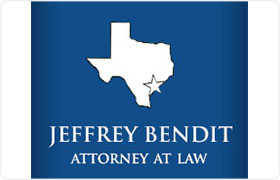Kendleton DUI-DWI Lawyer, Texas
Sponsored Law Firm
-
 x
x

Click For More Info:
-
Jeffrey Bendit P.C.
434 N. Brooks St. Hwy 36. Brazoria, TX 77422» view mapCriminal Law The Lawyer West of the Brazos
When you need someone to fight for you, we can thoughtfully evaluate your experiences and honestly direct you to the most appropriate course of legal action.
800-833-4190
David William Kiatta
Juvenile Law, Domestic Violence & Neglect, , DUI-DWI, White Collar Crime
Status: In Good Standing
FREE CONSULTATION
CONTACTRichard B. Collins
DUI-DWI, Estate Planning, Administrative Law, Commercial Real Estate, Criminal
Status: Deceased Licensed: 54 Years
Michael Lawrence Bernoudy
DUI-DWI, Estate Planning, Personal Injury, Family Law, Federal Appellate Practice
Status: In Good Standing Licensed: 19 Years
Mandy Goldman Miller
Federal Appellate Practice, Divorce & Family Law, DUI-DWI, Criminal
Status: In Good Standing Licensed: 18 Years
Christopher E Allen
Juvenile Law, Domestic Violence & Neglect, , DUI-DWI, Criminal
Status: In Good Standing Licensed: 41 Years
William Morrison Kennedy
DUI-DWI, Personal Injury, Domestic Violence & Neglect, , Mass Torts
Status: In Good Standing Licensed: 22 Years
Michael William Elliott
Juvenile Law, Estate Planning, Family Law, DUI-DWI, Criminal
Status: In Good Standing Licensed: 33 Years
John Paul Cedillo
Immigration, Employment, Family Law, DUI-DWI, Personal Injury
Status: In Good Standing Licensed: 10 Years
Stephen A. Doggett
DUI-DWI, Criminal, Criminal, DUI-DWI, Criminal
Status: In Good Standing Licensed: 49 Years
 Jeffrey Bendit Brazoria, TX
Jeffrey Bendit Brazoria, TX AboutJeffrey Bendit P.C.
AboutJeffrey Bendit P.C. Practice AreasExpertise
Practice AreasExpertise
